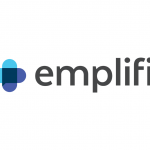If there is one part of society that did not shut down during the COVID-19 pandemic, it is the government and public health sector. The public has been facing a crisis of compromised health, confidence, and financial security and governments have had to communicate on all fronts as ongoing policy measures had to be taken to protect citizens and their national economy.
A successful response to the pandemic, more than anything, requires a co-ordinated multi-stakeholder effort to communicate the information around it quickly and with clear public leadership.
Once the containment phase of the crisis ends, the focus will shift towards economic rebound. In the transition to recovery, citizen attitudes and behaviours will be shaped by the severity and frequency of potential new virus outbreaks, and the effectiveness of the government response for both health and economic measures.
Public sector communicators now need to engage with the public in rolling out vaccination programs, whilst working with business and industry towards economic rebuilding.
“More than ever, the acceptance of public policies depends on consistent and effective communication as a first line of action. This needs to be leveraged for several objectives linked to successful COVID-19 communications, such as the public’s confidence in their country’s ability to cope with and recover from the pandemic, personal behaviour changes, and being the most trusted source of information to combat misinformation.” explains Abdulrahman Inayat, Director and Co-Founder of W7Worldwide. “Of course, communication alone is not the pandemic cure-all, however, it is a significant public health intervention. Effective public sector communications is crucial in engaging citizens and the business community.”
W7Worldwide has produced a 7-Step Guide for Public Sector communicators with the key factors to consider in their communications strategies. This includes the need to combat misinformation and establish a central trusted source of information.
Media works as a bridge between government and society and in this crisis plays a significant role in making people aware about the situation. Equally digital engagement initiatives by governments can help people cope with the crisis.
Communicators need to understand their target audience, demographics, and behaviour to be able to go where they reside and engage with them in their preferred communication style (Click Here to Read Full Report).
The response efforts from government have an impact on the ongoing level of trust from citizens, influencing their reaction and cooperation with social distancing and other protocols put in place to prevent the spread of the virus.
Public sector agencies and departments are constantly having to adjust their COVID-19 strategies through the various stages of the crisis and communicate them with the right constituents and stakeholders.
Governments therefore need a way to send trusted, accurate and reliable information on a regular basis as the situation changes across the country and even the world.
Source: W7Worldwide Marketing Communications Consultancy Agency, 2021.
MARKETING Magazine is not responsible for the content of external sites.








